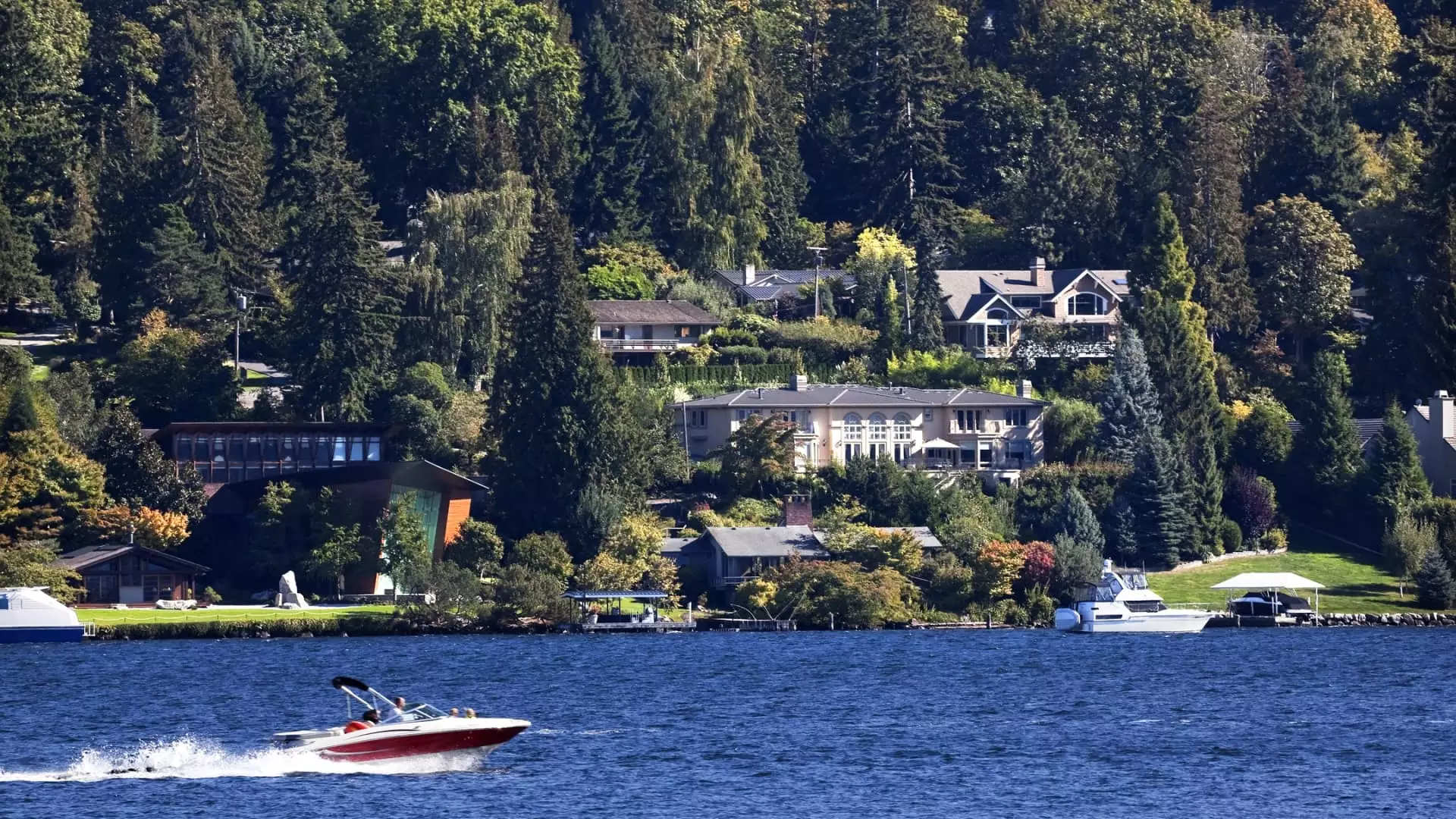The narrative that the United States is brimming with millionaires has become an almost comforting refrain. With the latest figures from UBS indicating 23.8 million millionaires by 2024, one might be tempted to think that prosperity is uniformly shared. A staggering 379,000 new millionaires were minted last year alone—over a thousand each day! That growth of 1.5% might seem commendable at first glance, yet underneath this glittering facade lies an unsettling reality that merits closer scrutiny.
The swell of wealth appears to be facilitated by a booming Wall Street and the resilience of the U.S. dollar. However, this surface-level success obscures a troubling undercurrent. As President Trump’s trade war looms large, recession fears are creeping back into the economic conversation, causing turmoil for the very markets that have been rewarding millionaire status. Is it possible that these new millionaires are nothing more than benefactors of a transient bubble? Or are they the canaries in the coal mine, signaling deeper economic fragility?
Global Inequities and the Mirage of Wealth Distribution
While it is easy to celebrate the burgeoning number of millionaires in the U.S., one cannot overlook how vastly different the situation is around the globe. For instance, China, despite producing over 141,000 new millionaires—effectively increasing its total to 6.3 million—exemplifies a different growth story. With a percentage increase of 2.3%, China’s millionaire boom could be indicative of a precarious economic landscape in which many are still left behind. Meanwhile, Turkey experienced the highest percentage growth—8.4%—but at a base of only 87,000 millionaires, raising questions about long-term sustainability.
Despite the robust increase in millionaire numbers, the reality of wealth concentration remains agonizingly stark. While 40% of the world’s millionaires reside in the U.S., nations like Luxembourg and Switzerland exhibit a higher concentration of wealth relative to their populations. With one in seven adults in these countries boasting a fortune of at least $1 million, we must ponder: Is the wealth concentrated among the elite really a sign of national prosperity, or a critique of systemic inequalities?
The Lost Generation: A Struggling Middle Class
UBS’s estimation of 60 million millionaires globally, with a staggering collective worth exceeding $226.47 trillion, juxtaposes sharply against the plights faced by the middle class. The narrative of soaring numbers hides a deeper truth: a significant portion of wealth is monopolized by an elite few at the top. The world’s 2,860 billionaires hold about $15.7 trillion, and a mere 15 centibillionaires control a jaw-dropping $2.4 trillion. This glaring wealth disparity raises the question—what has happened to the middle and lower wealth brackets?
In a revealing observation, UBS noted the underappreciated but burgeoning cohort of “everyday millionaires,” those whose net worth ranges from $1 million to $5 million. This demographic, which has quadrupled since 2000 to an impressive 52 million, dwarfs the combined wealth of all billionaires. The reality here is that while the billionaire class may relish in the wealth accrued from tech innovations and economic booms, millions of householders are quietly amassing their fortunes, often through resilience, investment in real estate, or entrepreneurship.
The Technology Dividends: A Double-Edged Sword
The tech boom has sculpted an entirely new economic landscape, lifting many into millionaire status while simultaneously exacerbating inequality. It’s hard to argue against the notion that the “mega tech entrepreneurs” epitomize opportunity, but for every tech titan, countless others struggle to navigate a market increasingly tilted toward technology-driven success.
In this dual reality, the growth of wealth among everyday people remains both promising and perplexing. While it is commendable that many are finding financial security, we should question the underlying systems that shape their chances for owning property, accessing education, and building networks. If the path to wealth is so convoluted that it creates such distortion between the mega-rich and the everyday citizen, what does this truly say about our society?
We find ourselves at a crossroads—will we continue to celebrate these staggering wealth increases among the few while ignoring the systemic barriers faced by many, or will we create a more equitable economic framework that reflects the true diversity and potential of all its citizens? The path we choose will define our society for future generations.


Leave a Reply